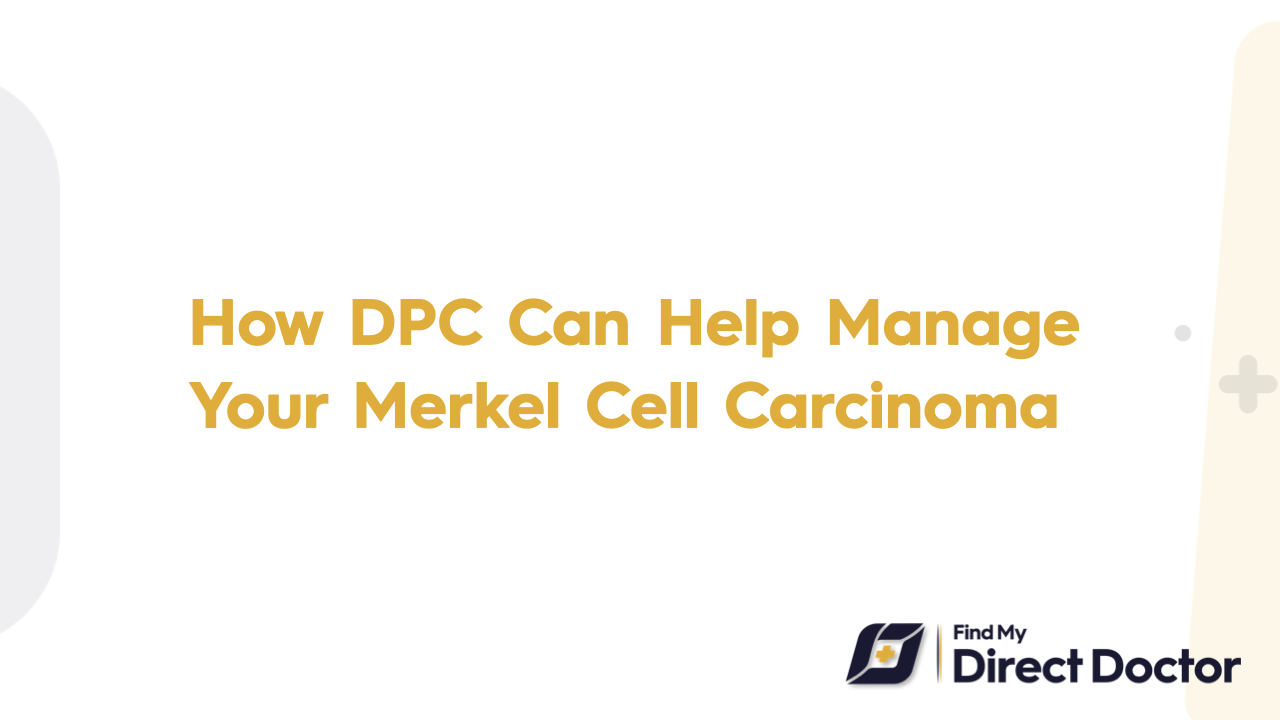



The skin's epidermis contains Merkel cells, which are the source of Merkel Cell Carcinoma (MCC), an uncommon and aggressive kind of skin cancer. These cells, which are present in hair follicles, are involved in touch perception. Although it can occur in other parts of the body, MCC usually appears in sun-exposed skin conditions. The illness, which is more prevalent in those over 50, is linked to compromised immune systems, such as those who have received organ transplants or are infected with HIV/AIDS.

A painless, firm, and quickly expanding lump or tumor on the skin, typically on the face, neck, or arms, is the most typical sign of MCC, however there are other symptoms as well. These nodules can have a glossy look and are usually red or purple in color. Additional symptoms may include the emergence of new lumps in the surrounding areas and modifications to the appearance of an existing lesion or mole. MCC can expand to lymph nodes and other body areas in its more severe stages, resulting in symptoms like discomfort, edema, or trouble breathing.
Merkel Cell Carcinoma can be managed in a novel and patient-centered way with Direct Primary Care (DPC). Patients can communicate directly and continuously with their healthcare practitioner using the DPC model, which enables prompt management of disease-related symptoms and concerns. By working with experts like dermatologists, oncologists, and surgeons who can offer focused treatment for MCC, DPC providers are in a good position to coordinate care.
Intervention and early identification are crucial in the case of Merkel Cell Carcinoma. Regular skin exams are permitted for patients with DPC in order to keep an eye out for any changes or questionable growths. Additionally, patients may readily discuss any new issues with their primary care physician, which helps to guarantee timely referrals to the right specialists when needed. Through comprehensive, easily available healthcare, DPC facilitates a more integrated approach to cancer care, empowering patients to take an active role in controlling their illness.
Patients with Merkel Cell Carcinoma can benefit greatly from the DPC model, especially when it comes to accessibility, continuity of care, and preventative health management. The opportunity to have a solid, continuing relationship with a primary care physician who can track the patient's general health and skin condition over time is one of the biggest advantages. This guarantees that any skin alterations or MCC symptoms are identified early, which could enhance the effectiveness of treatment.
The emphasis on individualized care is an additional advantage. It is easier to comprehend the subtleties of the patient's condition and adjust the care plan appropriately when DPC gives more time for talking about specific health issues. Because DPC eliminates the need for insurance and the wait times that come with traditional healthcare models, patients may simply contact their provider for follow-ups, updates, and referrals, reducing the stress of navigating the healthcare system.
A key component of Direct Primary treatment's approach to treating Merkel Cell Carcinoma is personalized treatment. Individualized treatment plans that are customized to each patient's particular health requirements and circumstances are provided through DPC. This individualized approach guarantees that the MCC treatment is modified according to the patient's unique health status, risk factors, and reaction to therapy.
DPC providers can provide advice on lifestyle choices that may promote general health and cancer recovery in addition to medical therapies. This can include advice on how to keep active, manage stress, and maintain a good diet—all of which strengthen the immune system. DPC's emphasis on individualized, ongoing care guarantees that patients with Merkel Cell Carcinoma receive all-encompassing assistance during their course of treatment, assisting them in managing the psychological and physical effects of their illness.
Previous Post